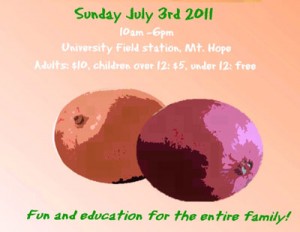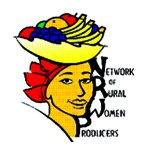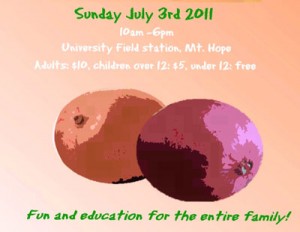 Once again, mangophiles gathered to celebrate the mango season at the third Mango Festival in T&T held on 3rd July. The University of the West Indies’ field station was again the venue of this festive occasion and the U.W.I. staff -Dr. Cockburn, James at the filed station and many others- deserve much praise. IICA also gives tremendous support at all stages of planning and organizing of the mango festival.
Once again, mangophiles gathered to celebrate the mango season at the third Mango Festival in T&T held on 3rd July. The University of the West Indies’ field station was again the venue of this festive occasion and the U.W.I. staff -Dr. Cockburn, James at the filed station and many others- deserve much praise. IICA also gives tremendous support at all stages of planning and organizing of the mango festival.
Although the wet weather this year affected the mango crop, many people came to enjoy the ambience of an event that has proven to be educational and entertaining in preference to other events on that day. I think the tourism ministry was involved and they certainly added flavour to the proceedings.
The dances were fantastic. If they could get those dances out on the internet I’m sure there would be even more people attending next year. No less enjoyable was the exquisite steelband music with a number of old time favourites.
I think there is a natural harmony among the mango displays and the various cultural performances that brings out so much of the talent and creativity of Caribbean people. There is much potential for developing the tourism side of these kinds of festivals. Quite a few of the people I spoke with at the festival were Trinbagonians living abroad and visiting T&T.
Other Caribbean countries are interested in our festival as well. We were graced by the presence of the ambassador from Surinam, and the prize for the best booth was won by a delegation from Grenada.
Mango cultivation is also vital for protecting the environment and this is another reason why government agencies are interested in the mango. Trees have numerous benefits. I was very happy to learn last year, when I was at the forestry division, that they plant mangoes in their re-forestation programme. Mango trees have extensive root systems that hold the soil and prevents erosion. The canopy shades and protects the soil. The fruits are a source of food for birds and other animals, as well as humans.
Charles de Matas
Trinidad

